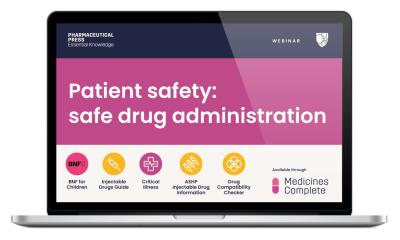Breast cancer
Studies of tamoxifen vs. aromatase inhibitors may change therapies
Five years of therapy with the drug tamoxifen has become the norm for postmenopausal women with hormone-sensitive breast cancer. However, this has several adverse side effects, and studies have continued to compare the effects of other drug therapies with tamoxifen.
Therapy with a class of drugs named aromatase inhibitors would benefit women in that group more than tamoxifen, according to the international Arimidex, Tamoxifen, Alone or in Combination (ATAC) Adjuvant Breast Cancer Trial, which, for five years, has compared the safety and efficacy of tamoxifen with anastrozole alone, as well as a combination of both drugs. The 3-year analysis of the data (Pub: The Lancet 2002; 359: 2131-39) was encouraging enough to suggest that anastrozole (Arimidex - produced by Zeneca Pharmaceuticals and FDA approved Jan. 1996, to treat post menopausal breast cancer) could be a future treatment option.
The five-year follow-up results, presented at the San Antonio Breast Cancer Symposium, in Texas, USA, in December, and simultaneously published online by The Lancet (www.thelancet.com), show that, compared with tamoxifen, anastrozole increased disease-free survival by over 10%; increased the time to disease recurrence by around 20%; reduced cancer spreading (distant metastases) by 14%, and reduced cancer occurring on the other breast by over 40%.
Fewer women given anastrozole stopped taking the tablets early compared with those given tamoxifen; anastrozole was associated with fewer side effects although bone fractures and joint pain were more common than among women given tamoxifen.
Lead investigator Professor Anthony Howell, of Christie Hospital NHS Trust, Manchester, UK) said: ‘Results from studies evaluating aromatase inhibitors after 2-3 years or 5 years of adjuvant tamoxifen, compared with continuing tamoxifen, suggest that it is reasonable to switch patients currently on tamoxifen to an aromatase inhibitor. However, these new data from the ATAC trial suggest that it is not appropriate to wait to start an aromatase inhibitor. The higher rates of recurrence (especially in years 1-3), and the increased numbers of adverse events and treatment withdrawals associated with tamoxifen, lend support to the approach of offering the most effective and well-tolerated therapy at the earliest opportunity. Five years of anastrozole should now be considered as the preferred initial adjuvant endocrine treatment for postmenopausal women with hormone-receptor-positive localised breast cancer.’
Letrozole
‘Early’ breast cancer (localised in breast tissue and/or nearby lymph nodes) usually involves surgery to remove the tumour and surrounding tissue, followed by post-surgical therapy which can include radiation and/or chemotherapy, followed by treatment with five years of tamoxifen.
New data from the Breast International Group (BIG) 198 Trial, recently presented at the Primary Therapy of Early Breast Cancer 9th International Conference in Switzerland, suggests that, for postmenopausal women with early breast cancer, the drug letrozole, as a post-surgery protection against recurrence, reduced the risk by 19% beyond the risk reduction achieved by tamoxifen. Thetudy’s chair, Dr Beat Thurlimann said that now further investigations and longer follow-up are needed to optimise the use of letrozole, to establish long-term safety and tolerability of the drug.
BIG 1-98 is the first clinical trial designed to incorporate both a head-to-head comparison of letrozole with tamoxifen and a sequencing of both agents, during the first five years following breast cancer surgery, to determine the most effective approach to minimising the risk of breast cancer recurrence.
The study compares five years of tamoxifen versus five years of letrozole; tamoxifen for two years followed by letrozole for three years; and letrozole for two years followed by tamoxifen for three years.
Study data are expected to answer important questions regarding the optimal sequencing of aromatase inhibitor therapy in postmenopausal women with endocrine responsive early breast cancer.
Results - BIG 1-98 is a multinational Phase III double-blind, randomised multicentre trial being conducted in 27 countries and involving over 8,000 postmenopausal women with early breast cancer who have hormone receptor-positive tumours. The primary goal was to determine if letrozole could reduce the risk of a disease-free survival event (breast cancer relapse, occurrence of a second (non-breast) malignancy or death without recurrence) compared with tamoxifen. At a median follow-up of 26 months the study shows that, compared with tamoxifen, letrozole reduced the risk of such events by 19%. Among the 4,003 patients in the letrozole group, 84.0% remained alive and disease-free at five years compared with 81.4% of the 4007 patients in the tamoxifen group.
Side effects - More on tamoxifen: venous thrombosis and embolism (clots); vaginal bleeding more often, which led to more endometrial abnormalities and endometrial biopsies. More on letrozole: bone fractures; cholesterol elevation (usually mild); heart attacks and strokes slightly more often, though these events were very rare with both treatments.
Background
BIG 1-98 is being conducted under the umbrella of the Breast International Group (an international non-profit organisation), coordinated and managed by the International Breast Cancer Study Group (IBCSG). Novartis, the producer and distributor of letrozole (Femara) provided financial support. The International Breast Cancer Study Group (HQ: Berne Switzerland. www.ibcsg.org), an active member of the BIG organisation, is a non-profit organisation founded as the ‘Ludwig Breast Cancer Study Group’ in 1977.
01.03.2005





